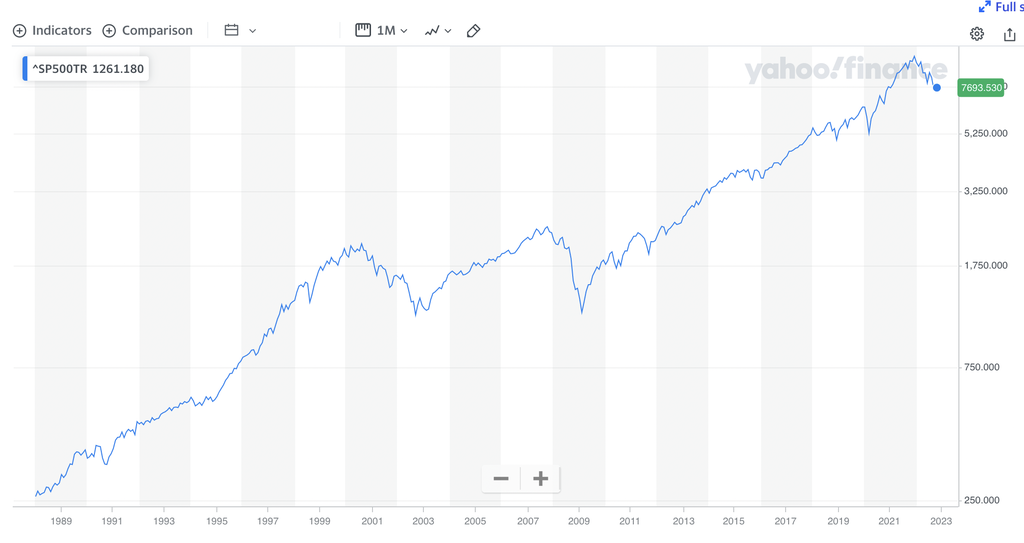Recency Bias
I remember when my first serious girlfriend broke up with me, which was decades ago. Her chief complaint at the time had to do with some recent event, the nature of which I do not recall, but I do remember our conversation about it. In particular, I pleaded with her and explained how she was clouded by recency bias, and focusing on the recent negative experience while forgetting all the good experiences.
In the end, I think she was right, though I couldn’t see it at the time. I was certainly better off, and at the time I didn’t have enough self worth to see it.
Recency bias is one of the more common cognitive biases we encounter (and suffer from) on a day to day basis. Other common ones include survivorship bias, the availability heuristic, confirmation bias, cognitivie dissonance, and more. Wikipedia has a good listing. If you want to read a book on the subject, Thinking Fast and Slow is a good one.
I think the worst outcomes happen when you combine recency bias with loss aversion, which can help you work synergistically to screw yourself.
In short, recency bias makes you weight recent events with greater importance than distant events, and loss aversion makes you weight losses greater than wins. A decent real life example of this is how we lament when the stock market goes down in the near term, but fail to recognize the bounty of many years of bull market.
2022 has, up till now, been one of the worst bear markets in history, and in absolute terms is definitely the worst year in history. If you’ve been watching your portfolio you’ve likely been feeling it. However, if we put our feelings aside and look at the data, it’s not so bad. Keep in mind that valuations at the end of 2021 were exceptionally high, and if you look at historical trends we’re pretty much in line with history.
If you want assurance, the first place to look is the S&P 500 total return index. It’s important to examine total return, rather than the absolute index, because otherwise you are missing out on a significant portion of the returns from the S&P 500. If we plot the returns since 1988 (the farthest I can find for freely available data) it looks like this:

One important thing to note is that I’m using a logarithmic scale. If you try to make such comparisons with a linear scale you aren’t going to get very good results (alternatively you can convert the absolute index values to relative returns if you want to get fancy with Python).
If you do a crude linear regression by drawing a straight line across the chart, you’ll notice a few about the current market decline:
- In terms of relative magnitude, things aren’t so bad right now.
- Valuations are starting to look pretty reasonable now, relative to historic returns.
- Things might seem bad, but they could get a lot worse (that doesn’t mean they will, though).
- 2008-09 was much worse than the current market.
- If you’d bought at the peak around 2000, it wouldn’t be until 2013 or so that you’d start to see positive returns again.
- If you’d bought at the low point around 2003 or 2009, the difference in your returns would be tremendous.
On that last point, if you bought at the pre-2008 crash peak of about 2,432, today you would be up about 317%, but if you bought at the low point of the 2008-09 crash at around 1,188 you’d be up a whopping 649% today, even with the recent selloff.
I won’t do the math to see how bad it would be if you sold at the bottom of the 2008-09 crisis, but you can probably surmise that it would be quite bad.
So anyway, I guess the point here is that if you’re worried about the scary market news and all the talking heads on the TV saying you should be scared, you should just turn the TV off (or close that browser tab), go outside, and keep buying the dip if you can because we’re definitely well below the previous market highs, and we may certainly go much lower, but we’ll probably bounce back before you know it.
I think we’ve got until 2030 or so before climate change starts to really take a toll, so until then we’re likely to have several good years. And even when climate disasters start to really ramp up, I think it will be quite good for the stock market because disaster capitalism is very profitable. I don’t love it, in fact I quite despise it, but that’s the way it goes.